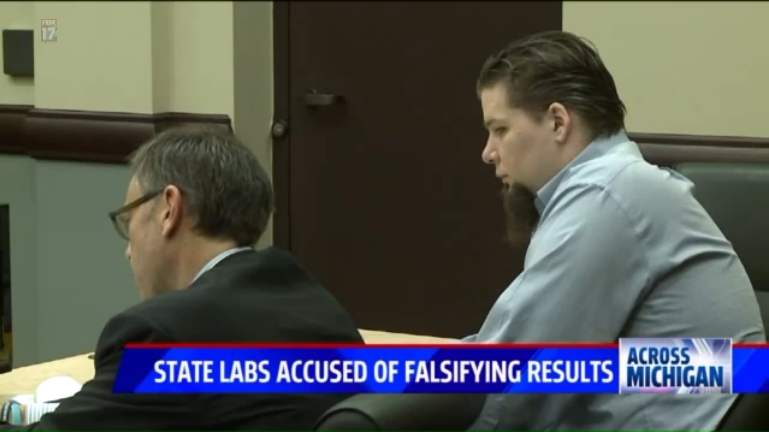January 16, 2024
On August 29, 2023, the Department of Health and Human Services (HHS) reportedly recommended to the Drug Enforcement Administration (DEA) that marijuana be rescheduled from Schedule I to Schedule III under the Controlled Substances Act (CSA). DEA is currently reviewing HHS’s recommendation.
When considering whether to schedule or reschedule a controlled substance, DEA is bound by HHS’s recommendations on scientific and medical matters.
However, DEA has also stated that it has “final authority to schedule, reschedule, or deschedule a drug under the Controlled Substances Act.”
A previous CRS Insight outlined policy considerations related to rescheduling marijuana. This Legal Sidebar provides additional information on the legal consequences of the possible move of marijuana from Schedule I to Schedule III.
Current Legal Status of Cannabis Under the CSA
Cannabis and its derivatives generally fall within one of two categories under federal law: marijuana or hemp. Unless an exception applies, the CSA classifies the cannabis plant and its derivatives as marijuana (some provisions of the statute use an alternative spelling, “marihuana”).
The CSA definition of marijuana excludes
(1) products that meet the legal definition of hemp and (2) the mature stalks of the
cannabis plant; the sterilized seeds of the plant; and fibers, oils, and other products made from the stalks and seeds.
Marijuana is a Schedule I controlled substance under the CSA.
Federal law defines hemp as the cannabis plant or any part of that plant with a delta-9
tetrahydrocannabinol (THC) concentration of no more than 0.3%. The non-psychoactive compound cannabidiol (CBD) falls within the legal definition of hemp. Hemp is not a controlled substance under the CSA.
Substances become subject to the CSA through placement in one of five lists, known as Schedules I through V.
Congress placed marijuana in Schedule I in 1970 when it enacted the CSA. A lower schedule number carries greater restrictions under the CSA, with controlled substances in Schedule I subject to the most stringent controls. Schedule I controlled substances have no currently accepted medical use.
It is illegal to produce, dispense, or possess such substances except in the context of federally approved scientific studies, subject to CSA regulatory requirements designed to prevent abuse and diversion.
RESTORE YOUR SECOND AMENDMENT RIGHTS
RESTORE YOUR PROFESSIONAL LICENSE
RESTORE YOUR DRIVER LICENSE
RESTORE YOUR PAST (Expungements)
Call our Office for a free case evaluation
Komorn Law (248) 357-2550
Unauthorized activities involving Schedule I controlled substances are federal crimes that may give rise to large fines and significant jail time. DEA is required to set annual production quotas for Schedule I controlled substances manufactured for use in approved research.
In addition to the general regulatory framework that applies due to marijuana’s Schedule I status, some provisions of the CSA apply specifically to marijuana. For instance, 21 U.S.C. § 841 imposes mandatory minimum prison sentences for persons convicted of criminal CSA violations involving set quantities of specific controlled substances, including marijuana. In addition, 21 U.S.C. § 823 creates special registration requirements for those who manufacture marijuana for research purposes.
In sharp contrast to the stringent federal control of marijuana, in recent decades nearly all the states have changed their laws to permit the use of marijuana (or other cannabis products) for medical purposes.
In addition, twenty-four states and the District of Columbia have passed laws removing certain state criminal prohibitions on recreational marijuana use by adults.
As the Supreme Court has recognized, states cannot actually legalize marijuana because the states cannot change federal law, and the Constitution’s Supremacy Clause dictates that federal law takes precedence over conflicting state laws.
So long as marijuana is a Schedule I controlled substance under the CSA, all unauthorized activities involving marijuana are federal crimes anywhere in the United States, including in states that have purported to legalize medical or recreational marijuana.
Nonetheless, Congress has granted the states some leeway to allow the distribution and use of medical marijuana.
In each budget cycle since FY2014, Congress has passed an appropriations rider barring the Department of Justice (DOJ) from using taxpayer funds to prevent states from “implementing their own laws that authorize the use, distribution, possession, or cultivation of medical marijuana.” Courts have interpreted the appropriations rider to prohibit federal prosecution of state-legal activities involving medical marijuana.
However, it poses no bar to federal prosecution of activities involving recreational marijuana.
Moreover, the rider does not remove criminal liability; it merely limits enforcement of the CSA in certain circumstances while the rider remains in effect. While official DOJ policy has varied somewhat across Administrations, recent presidential Administrations have not prioritized prosecution of state-legal activities involving marijuana.
Read the rest here –> Legal Consequences of Rescheduling Marijuana Jan 2024

Komorn Law – Federal Courts and All Michigan Courts
More Posts

Forensic scientists blast State Police crime lab THC policy as man fights to get son back
Maxwell Lorincz lives in Spring Lake near Lake Michigan with his wife and their six-year-old son. At least, they did live with their son, until a year and a half ago. They lost custody of him after Lorincz was charged with a felony for possessing synthetic THC....

People v Redden & Clark – MI Medical Marijuana hearing – February 20 2013
During this February 20, 2013 hearing, Assistant Oakland County Prosecutor Beth Hand notified the court that her office is contemplating filing criminal charges against a medical doctor for his involvement in certifying two medical marijuana patients, Robert Redden...

Medical marijuana lawyers want state crime lab moved out of Michigan State Police
"The attorneys claim the policy change is leading to unfair felony charges for patients who would otherwise face misdemeanors." Posted on MichiganRadio.org A group of criminal defense attorneys says the Michigan State Police (MSP) should no longer...

Defense attorneys seek fed inquiry of MSP crime labs
Southfield — Three defense attorneys are asking the federal government to investigate the Michigan State Police crime laboratories, alleging misconduct in their testing for pending drug cases. Southfield defense attorneys Neil Rockind and Michael Komorn, along...

MI Cops Change Policy So They Can Falsely Imprison Legal Pot Smokers
In 2008, an overwhelming majority of Michigan voters approved legislation to legalize marijuana for medical use in the state. With nearly 50,000 Michigan residents arrested and incarcerated each year for controlled substance violations, the state’s prison industrial...

Attorney Alleges Authorities `Bend The Science’ To Elevate Marijuana Cases
MIRS-Michigan Independent Source Of News and Information Friday Nov 6, 2015 Maxwell LORINCZ, of Spring Lake, says a fingerprint of oil on an empty plastic container led to his arrest on a drug charge on Sept. 24, 2014. Now, a year later, the case that might have...

Drug felonies without credible proof? — Allegations of politicking in state police crime labs
GRAND RAPIDS, Mich. – First on FOX 17, we broke serious allegations that state police crime labs are being told to falsely report marijuana test results. This is resulting in misleading lab reports that an attorney claims creates felonies without real proof. ...

Attorney: Crime labs ‘falsified’ marijuana reports
A Southfield lawyer alleges the Michigan State Police crime labs have “falsified lab reports on marijuana statewide” and he’s asking a judge to dismisses charges lodged against a client. Michael Komorn, who also represents defendants in Livingston County, said...

Hearing in alleged false crime lab marijuana reporting dropped this week
OTTAWA COUNTY, Mich. – The evidentiary hearing originally set for Nov. 5 has been dropped in the case involving a medical marijuana patient charged with a disputed felony for synthetic THC, the psychoactive ingredient in marijuana. The Ottawa County Assistant...

“A non-stop political game:” Former MSP Forensic Science director on false marijuana reporting …
DEWITT, Mich. – A former director of Michigan State Police Forensic Science addressed the serious allegations FOX 17 uncovered, which accuse the Attorney General’s office and state prosecutors of influencing state police crime labs to falsely report marijuana;...








